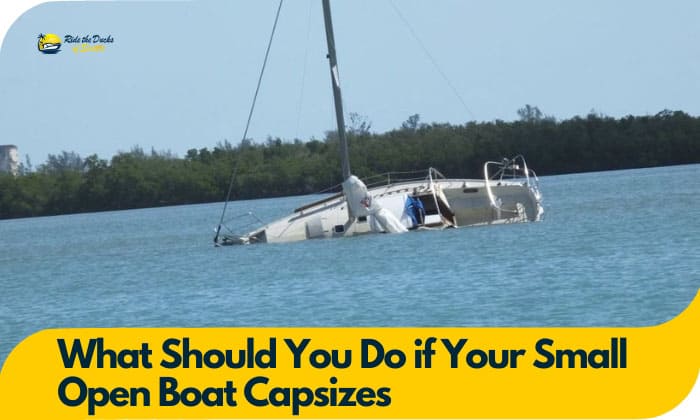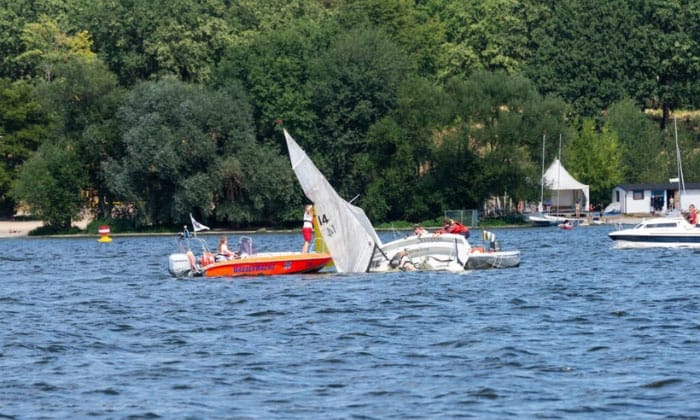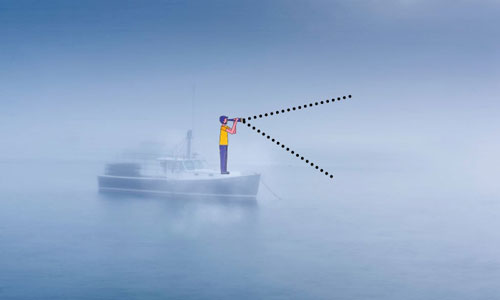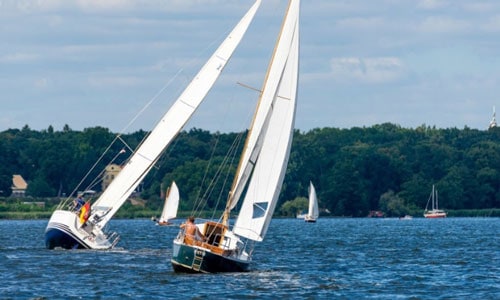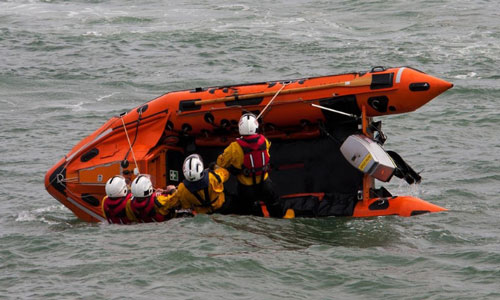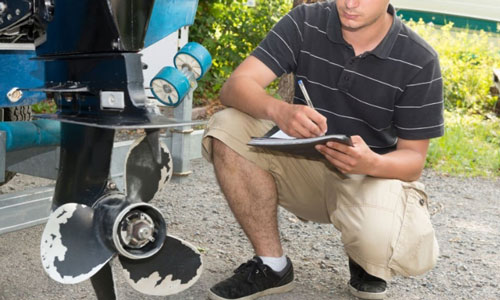What should you do if your small open boat capsizes? Your immediate action is to stay by the boat. Call for help through the radio or lighting up a flare to send signals.
Aside from staying calm, get to know what caused the boat to capsize. Identifying this can help you address the problem and to be careful next time. Get to know how to avoid this accident with this short guide.
Actions to take during a boat capsizing
A boat capsizing means it turned upside down or the boat tipped over. It can be because of rough waves, harsh weather, or it hit a boulder or another boat.
Here is a list of things you should do.
Table of Contents
What Should You Do First: Immediate Actions
In a boat turning incident or any emergency situation, always try to stay calm first. Do not panic!
- Pay attention to your surroundings. Check if the people you boarded with are all with you. Do a headcount.
- Make sure no one is injured or tends to them if they are. Check if there is someone trapped when the boat capsized. Lift the vessel if you can with the help of other passengers. If someone falls overboard, throw a life buoy and heave them with the appropriate heaving line.
- If you are all in the water, hand out life jackets, especially to children. This also helps in warding off the cold that can cause hypothermia.
- Gather all passengers around. This makes it easier to rescue when all people are in one place, which is near the boat.
- Send a signal for help. You can use an emergency position-indicating radio beacon (EPIRB). If there is none, use any form of communication you have to the dock.
- Your last resort is to light up a flare and blow whistles. Do this only when you see signs of other life around or above you (e.g. helicopter). This makes it easier to be seen by others and send immediate help.
Survival Techniques and Safety Measures
When you have completed all necessary and immediate action, make sure to do the following when your boat overturned:
1. Know Your Location
Use your GPS, compass, or up-to-date chart to help you know where you are. This helps in communicating with your rescuers.
2. Pay Attention to Your Surroundings
Aside from the boat capsizing, other things can happen. This includes but is not limited to rain, fog descending on you, high or low tide, and sudden, harsh waves. Being observant helps in avoiding other possible accidents and injuries.
3. Assign Roles
The best way to go on about survival is to assign roles. Survey the passengers with you. Check who is capable and who has skills useful for ensuring everyone stays safe. Roles can be the ‘lookout,’ ‘navigator,’ ‘communicator,’ and ‘signaler’ or someone who yells, whistles or lights up the flare.
Additional Tips for Staying Safe
The best way to avoid accidents is to have pre-departure safety measures. Here are the common ones you should do:
1. Make Sure Not to Overload the Boat
Excess weight or swamping your boat is the most typical reason why they capsize. Other reasons are uneven weight distribution, sharp turns, and inclement weather. It is why you should always keep in mind not to go over the boat’s maximum capacity.
This procedure includes evaluating the headcount as well as the weight of supplies you will bring with you. All these reduce the risk of capsizing.
2. Check for Leaks and Possible Damage
Before using the boat, inspect the drain plugs, wiring, navigation system, engine, boat floor and walls, and other fittings of the vessel.
The last thing you want is for the boat to break down or absorb water, as well as run the risk of someone slipping and falling overboard.
3. Educate Every Passenger on Equipment and Systems
Informing everyone of emergency equipment is crucial. This includes a first aid kit, flares, life jackets, and fire extinguishers. In this way, anyone can easily respond if watercraft emergencies do happen.
Teach passengers how to operate systems as well. From using the radio and GPS to the bilge pump and extra lines, everyone, or at least most adults, should know how to navigate them.
Conclusion
What should you do if your small open boat capsizes? Make sure to stay above the water if you can. Use floaters like water bottles if available. Do a headcount, and assign roles to help all passengers to stay safe and survive.
Above all, stay calm. Nothing good comes out of panic, especially when someone falls overboard. It only raises alarm and doesn’t help anyone. Be observant of both your fellow passengers and your surroundings. As long as you look out for each other and signal for help the best you can, you can be rescued.

Ten years of enjoying countless trips on boats never made me love them any less! So I am here to put all those experiences into good use for other boaters who want to have a safe and fun trip with their friends and families.

